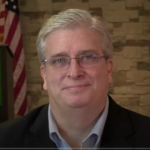PRESS RELEASE: New Study Outlines Fallacies of So-Called ‘Sustainable’ Investments
A Heartland Institute Policy Brief on “Fallacies of So-Called ‘Sustainable’ Investments” documents the growing efforts of climate alarmists force fund managers, in violation of their fiduciary duties to their clients, to defund cost-effective and clean energy generated by fossil fuels, diverting funds to costly and inefficient alternatives like wind and solar.
The study’s author, former merchant banker Martin Hutchinson, shows how these efforts drive up the costs of electricity, harming consumers and economies, and contribute to today’s corrupt, crony system, favoring politically connected “green” firms.
From the executive summary of the study:
In recent decades, there has been substantial growth in the so-called “sustainable” investments movement, which encourages portfolio managers to invest their clients’ funds in assets that are perceived to promote social benefits, especially assets believed to benefit the environment. According to a recent report by the U.S. Forum for Sustainable and Responsible Investment, the total U.S.-domiciled assets invested “sustainably” — a term broadly defined to include socially targeted investments — is $12 trillion.
A significant catalyst behind environmentally targeted investments is the belief that humans, through our use of fossil fuels, are primarily responsible for causing global warming and other environmental harms. A growing number of activists and investors believe fossil fuels cause serious harm to life on Earth and that the problems allegedly associated with fossil fuels will only get worse if levels of carbon dioxide (CO2) emissions are not reduced. This view is severely flawed and has caused numerous investors to improperly manage investments.
The recent riots in the streets of Paris against motor-vehicle fuel tax hikes make clear the public is catching on to the serious harm done by “green” policies, including many of those supported by sustainable investments. Portfolio managers can no longer accept without serious doubts the claim that antifossil-fuel investments benefit society.
This Policy Brief critically examines — from the point of view of a fiduciary or any other investor whose primary duty or goal is to maximize returns — the arguments made in favor of investing in so-called “sustainables.” This paper shows that fiduciaries have a moral obligation — and, in some cases, a legal obligation — to avoid sustainable investment practices. Such investments usually involve government subsidies and are made as a result of pressure from governments, meaning they are not promising on their own merits. Rather than embrace sustainable investment practices, fiduciaries should focus on sound science and investment practices that maximize risk-adjusted returns.
—
To interview the author or editor of this Heartland Policy Brief, please contact Director of Communications Jim Lakely at [email protected] and 312/377-4000 or (cell) 312/731-9364.
Jim LakelyJim Lakely is the Vice President and Director of Communications of The Heartland Institute.





